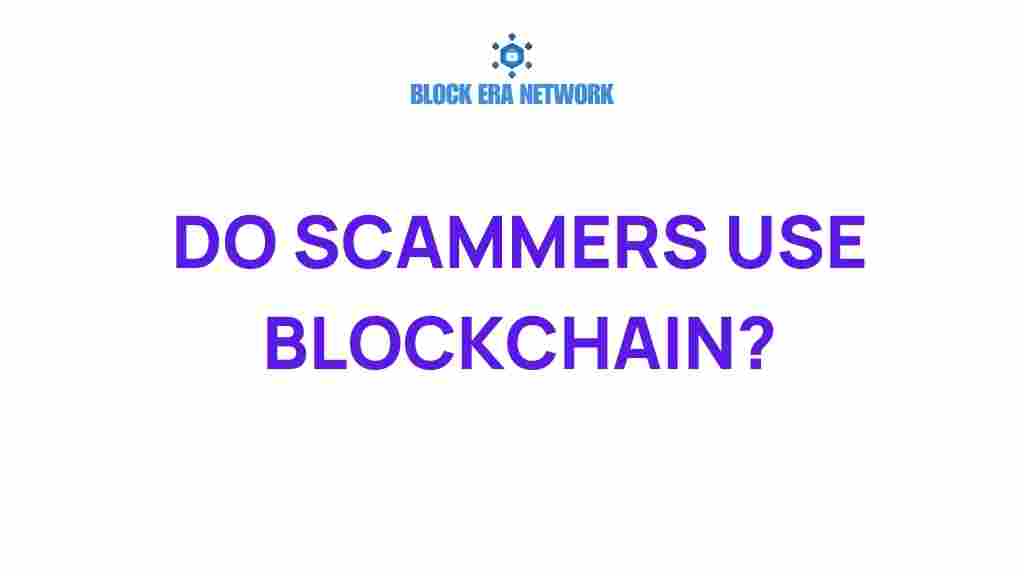Do Scammers Really Exploit Blockchain?
The advent of blockchain technology has revolutionized various industries, offering a decentralized and secure method for handling digital transactions. However, as with any technology, the rise of blockchain has also attracted scammers looking to exploit its features for fraudulent activities. In this article, we will unravel the truth about how scammers operate within the realm of blockchain and cryptocurrency, and what measures can be taken to safeguard against such cybercrime.
Understanding Blockchain Technology
Before delving into the tactics employed by scammers, it’s essential to understand what blockchain technology is and how it functions. Blockchain is a decentralized digital ledger that records transactions across multiple computers. This ensures that the data is secure, transparent, and immutable. Key characteristics of blockchain include:
- Decentralization: Unlike traditional databases, there is no central authority controlling the blockchain. This makes it resistant to censorship and fraud.
- Security: Transactions on the blockchain are encrypted and linked to previous transactions, making it extremely difficult to alter any information without consensus from the network.
- Transparency: All transactions are visible to participants on the network, which promotes accountability.
These features make blockchain a popular choice for various applications, including cryptocurrencies, supply chain management, and digital assets. However, they also create unique opportunities for scammers.
How Scammers Exploit Blockchain
Scammers have devised numerous schemes to take advantage of the cryptocurrency boom and the inherent characteristics of blockchain technology. Here are some common methods:
1. Phishing Attacks
Phishing is a prevalent method where scammers trick individuals into revealing sensitive information, such as private keys or login credentials. This can occur through:
- Email Phishing: Scammers send emails that appear to be from legitimate cryptocurrency exchanges, urging users to click on malicious links.
- Website Spoofing: Fake websites that mimic real exchanges can deceive users into entering their sensitive information.
2. Ponzi Schemes and Investment Scams
Investment scams promise high returns with little risk, luring victims into investing their cryptocurrency in non-existent or fraudulent projects. Common characteristics include:
- High Returns: Promises of unrealistic returns on investment.
- Lack of Transparency: Little to no information about the project or its operators.
3. Fake ICOs (Initial Coin Offerings)
Initial Coin Offerings allow startups to raise funds by issuing new cryptocurrencies. Scammers exploit this by launching fake ICOs, which can lead to significant financial losses for investors. Signs of a fraudulent ICO include:
- Vague Whitepapers: Lack of detailed project information or feasible business plans.
- Unverifiable Team: Teams with no verifiable history or credentials.
4. Ransomware
Ransomware attacks involve malicious software that encrypts a victim’s files, demanding payment in cryptocurrency for decryption. This type of cybercrime has surged with the popularity of digital assets.
Steps to Protect Yourself Against Scammers
While scammers may be clever, there are several proactive steps you can take to safeguard your digital assets and personal information:
1. Educate Yourself
Knowledge is your best defense against scams. Familiarize yourself with common tactics used by scammers and stay updated on the latest threats in the cryptocurrency space.
2. Use Secure Exchanges
Always use reputable cryptocurrency exchanges with strong security measures in place. Look for features such as:
- Two-Factor Authentication (2FA): Adds an extra layer of security.
- Cold Storage: Ensures that the majority of funds are stored offline.
3. Verify URLs and Emails
Before clicking on any links or providing information, always verify that you are on the correct website. Look for:
- Secure HTTPS Connection: Check for the padlock symbol in the address bar.
- Official Domains: Ensure that the domain matches the official exchange or wallet.
4. Utilize Hardware Wallets
For storing large amounts of cryptocurrency, consider using hardware wallets. These devices store your private keys offline, significantly reducing the risk of hacks.
5. Report Suspicious Activities
If you encounter any suspicious emails, websites, or activities, report them to the appropriate authorities. This can help prevent others from falling victim to scams.
Troubleshooting Common Issues
Even with precautions, you may face issues related to blockchain and cryptocurrency. Here are some common problems and solutions:
1. Wallet Access Issues
If you cannot access your cryptocurrency wallet, first ensure that you are entering the correct credentials. If you’ve lost your private key:
- Check backup options you may have set up.
- Contact support if you are using a reputable wallet service.
2. Transaction Delays
Sometimes transactions can take longer than expected to confirm. If this happens:
- Check the network status of the cryptocurrency you are using.
- Ensure you paid an adequate transaction fee.
3. Scammed or Lost Funds
If you believe you have fallen victim to a scam:
- Gather all necessary information and evidence.
- Report the incident to the relevant authorities and consider informing your bank.
Conclusion
While blockchain technology offers enhanced security and decentralization, it is not immune to exploitation by scammers. Understanding the common tactics employed by fraudsters and taking proactive measures to protect your digital assets can significantly mitigate risks. Stay informed, secure your cryptocurrency transactions, and remember that vigilance is key in the ever-evolving landscape of blockchain and cybercrime.
For more information on securing your digital assets, check out this resource on blockchain security. If you’re interested in learning more about cryptocurrency, consider visiting CoinDesk for the latest news and guides.
This article is in the category Crypto Security and created by Block Era Network Team
